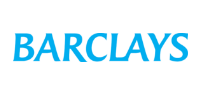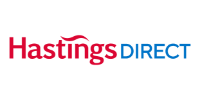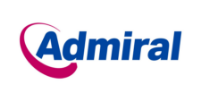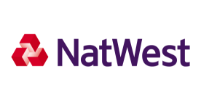
Compare Business Loans and get your quote today!
- Quicker Approvals and Funding
- Flexible Loan Terms, tailored to your needs
- Get loans starting from £1000 to a several million pounds*
LENDERS
Compare Business Loan quotes from 15+ major UK providers including:





What is a Business Loan?
How do business loans work?
A business loan is a financial arrangement where lenders provide funds to companies rather than individuals. Since the loan is extended to an organisation, the amount you can obtain is generally higher compared to a personal loan. You can utilise this amount for various purposes, from stocking up inventory before a busy season to investing in new machinery. The borrowed funds are paid back over a set period, along with interest.

- The application process for a business loan can be done online or in-person, depending on the lender’s preferences. Monefi has access to a specialist and tailored panel to ensure that you are getting the best funding for your business.
- Approval for business loans will depend on your company’s financial health, overall financial situation, and your individual creditworthiness. However as we have an extensive panel of lenders we can find funding options for those with adverse credit.
- The loan amount you can access is determined by various factors, including the amount you request and your company’s financial stability. Monefi facilitates business loans from as low as £1,000 to several million pounds, taking into account both your application and the lender’s assessment.
- Repayment terms for business loans vary, spanning from one year to as long as fifteen years.
What are different types of Business loans?
There are several types of business loans available in the UK, and they can generally be categorised into two main groups:
Secured Loan
With a secured business loan, your company can borrow funds by offering a business asset as collateral. This asset can be anything owned by your business, such as stocks or property. If you are unable to repay the loan, the lender has the right to sell the secured asset. The advantages of this type of loan include lower interest rates and the potential for larger loan amounts.
Unsecured Loan
Unsecured business loans allow your company to borrow money without the need for collateral or business assets as security. Because unsecured loans pose a higher risk to the lender, they typically come with higher interest rates.

Other types of business loans include:
Short-term Loans:
Ideal for covering emergency expenses, these loans typically have a shorter repayment period, usually ranging from 3 to 12 months.
Long-term Loans:
Designed for borrowing money over an extended period, long-term period can span from 5 to 30 years.
Cash Advance:
This option involves borrowing money based on your company’s future profits. For example, you might borrow £100,000 to renovate your offices and then repay a percentage of every card transaction until the loan is fully paid off.
Bad Credit Loans:
If your business has a poor credit history, you might encounter difficulties when seeking loans. However, some specialist lenders cater to companies with low credit scores and offer bad credit loans, albeit with higher interest rates.
Start-up Loans:
Intended for new businesses, start-up loans provide capital to help you establish and run your company. You can also explore government start-up loans, which have specific eligibility requirements, such as trading for less than 36 months.
Small Business Loans:
Tailored for small businesses, these loans are typically unsecured and can be used for various business needs.
Each type of business loan serves specific purposes and comes with its unique terms and conditions, making it essential for businesses to choose the one that aligns best with their financial goals and needs. At Monefi, our experts empower smart choices for business loans keeping in mind your specific long-term and short-term business aspirations. Together – let’s make it happen!
Eligibility check for Business Loans.
Eligibility for a business loan can vary based on several factors, including the business credit score and the type of loan you’re seeking.
Here are some key considerations:
Age:
Typically, you need to be at least 18 years old to qualify for most business loans. However, some lenders may have specific age requirements, so it's essential to check with individual lenders.
Credit Record:
Your business's credit record plays a crucial role in loan eligibility. A positive credit record can be built by repaying loans on time, maintaining a good credit score personally, and using business finance instead of relying on personal credit.
Type of Loan:
The specific type of business loan you're applying for can also impact eligibility. Start-up loans or small business loans, may have different requirements than larger, long-term loans. Monefi can assist you in understand these differences better.
Financial Health:
Lenders will assess your business's financial health, including its revenue, profitability, and cash flow. A healthy financial position can improve your eligibility for loans.
Business Plan:
Having a well-structured business plan that outlines how you intend to use the loan and generate revenue can boost your chances of approval.
Collateral:
For secured loans, you'll need to provide collateral, such as business assets or property, which can affect eligibility.
Trading History:
Some lenders may require your business to have been in operation for a certain period before being eligible for specific types of loans.
Industry:
The industry your business operates in can also impact eligibility, as some lenders may have preferences or restrictions related to specific sectors.
Age:
Typically, you need to be at least 18 years old to qualify for most business loans. However, some lenders may have specific age requirements, so it's essential to check with individual lenders.
Credit Record:
Your business's credit record plays a crucial role in loan eligibility. A positive credit record can be built by repaying loans on time, maintaining a good credit score personally, and using business finance instead of relying on personal credit.
Type of Loan:
The specific type of business loan you're applying for can also impact eligibility. Start-up loans or small business loans, may have different requirements than larger, long-term loans. Monefi can assist you in understand these differences better.
Financial Health:
Lenders will assess your business's financial health, including its revenue, profitability, and cash flow. A healthy financial position can improve your eligibility for loans.
Business Plan:
Having a well-structured business plan that outlines how you intend to use the loan and generate revenue can boost your chances of approval.
Collateral:
For secured loans, you'll need to provide collateral, such as business assets or property, which can affect eligibility.
Trading History:
Some lenders may require your business to have been in operation for a certain period before being eligible for specific types of loans.
Industry:
The industry your business operates in can also impact eligibility, as some lenders may have preferences or restrictions related to specific sectors.
Expert tip
It's essential to research and compare different lenders and loan options to find the one that best suits your business's needs and meets its eligibility criteria. Additionally, maintaining a strong credit history, managing your finances wisely, and having a clear business plan can enhance your chances of securing a business loan.
The lady who I spoke to was brilliant. She was lovely and pleasant whilst being professional and fully informative. She was not pushy at all. She certainly had the right attitude and was engaging. If everyone was like her it would be perfect.

Christine Notley
This was the easiest transaction I’ve had in a long time, the customer service was amazing and very helpful and nice to talk with, would highly recommend the company to friends family etc, fantastic customer service. 5 stars from me.

Zoe Mary Hall
Mr Gower was very professional and found the right cover for me. He was polite and engaged in conversation, explained everything easily.

Callum Dobson

Frequently Asked Questions
Benefits of a Business Loan:
- Purchasing Stock: Business loans enable bulk inventory purchases, saving costs and meeting customer demand.
- Hiring Staff: Access to capital for recruitment, training, and salaries, improving productivity and service.
- Moving Premises: Funding relocation to strategic locations for increased visibility and market access.
- Paying Off Debt: Consolidating high-interest debts with lower-interest loans to save on interest and improve cash flow.
- Buying New Equipment: Upgrading tools, machinery, or technology for enhanced efficiency and product quality.
- Expanding Operations: Capital for opening new locations, entering new markets, or launching new products, leading to increased revenue and market share.
Business loans empower growth and development without depleting working capital, making them a strategic investment for long-term success.
There is no set limit on the number of loans a business can have in the UK. The ability to obtain loans depends on factors like the business’s creditworthiness and financial stability. Businesses can have multiple loans concurrently, including traditional loans, lines of credit, mortgages, government support, and alternative financing. However, businesses should manage debt responsibly to ensure they can meet repayment obligations and maintain a healthy credit profile.
If a business in the UK can’t repay a loan, it may face default, accrued interest, late fees, legal action, damage to credit score, asset seizure, and even closure or bankruptcy in severe cases. Communication with lenders is essential to explore alternative repayment options and mitigate these consequences.
Benefits of a Business Loan:
- Purchasing Stock: Business loans enable bulk inventory purchases, saving costs and meeting customer demand.
- Hiring Staff: Access to capital for recruitment, training, and salaries, improving productivity and service.
- Moving Premises: Funding relocation to strategic locations for increased visibility and market access.
- Paying Off Debt: Consolidating high-interest debts with lower-interest loans to save on interest and improve cash flow.
- Buying New Equipment: Upgrading tools, machinery, or technology for enhanced efficiency and product quality.
- Expanding Operations: Capital for opening new locations, entering new markets, or launching new products, leading to increased revenue and market share.
Business loans empower growth and development without depleting working capital, making them a strategic investment for long-term success.
There is no set limit on the number of loans a business can have in the UK. The ability to obtain loans depends on factors like the business’s creditworthiness and financial stability. Businesses can have multiple loans concurrently, including traditional loans, lines of credit, mortgages, government support, and alternative financing. However, businesses should manage debt responsibly to ensure they can meet repayment obligations and maintain a healthy credit profile.
If a business in the UK can’t repay a loan, it may face default, accrued interest, late fees, legal action, damage to credit score, asset seizure, and even closure or bankruptcy in severe cases. Communication with lenders is essential to explore alternative repayment options and mitigate these consequences.






